Nothing is miserable unless you think it so.
BOETHIUSIf there is a God, whence proceed so many evils? If there is no God, whence cometh any good?
More Boethius Quotes
-





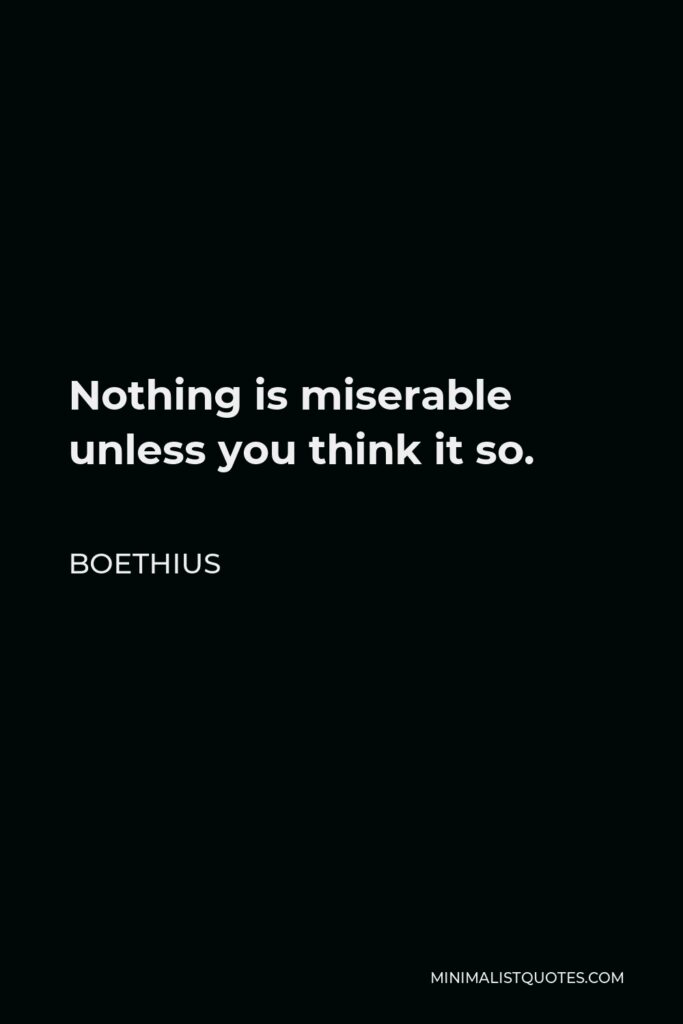

-







As far as possible, join faith to reason.
BOETHIUS -







As far as possible, join faith to reason.
BOETHIUS -







Every man must be content with that glory which he may have at home.
BOETHIUS -





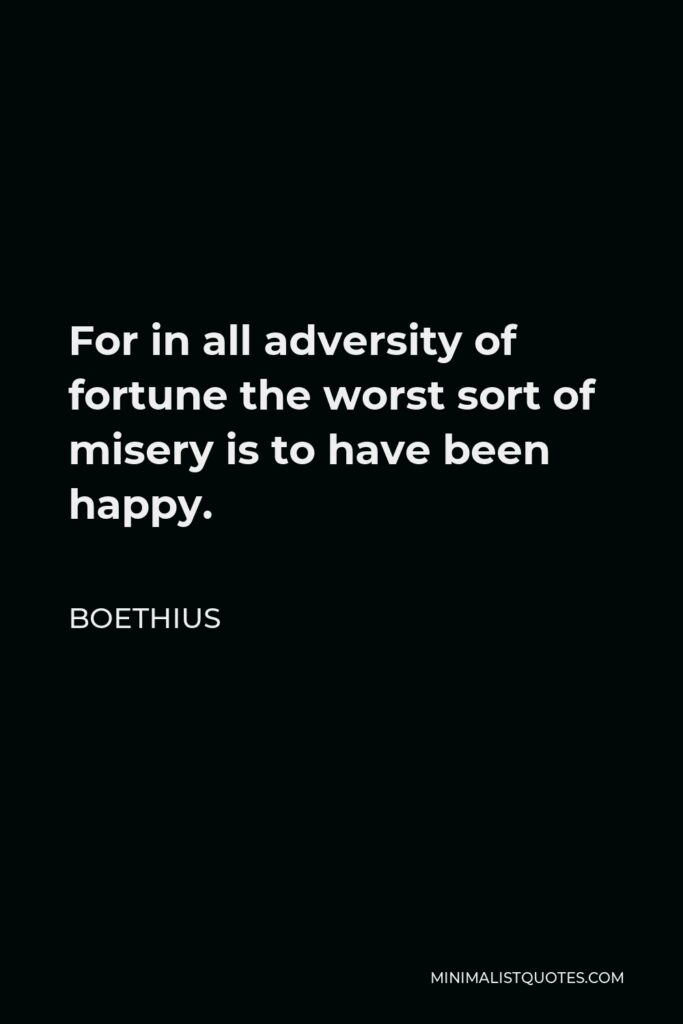

For in all adversity of fortune the worst sort of misery is to have been happy.
BOETHIUS -





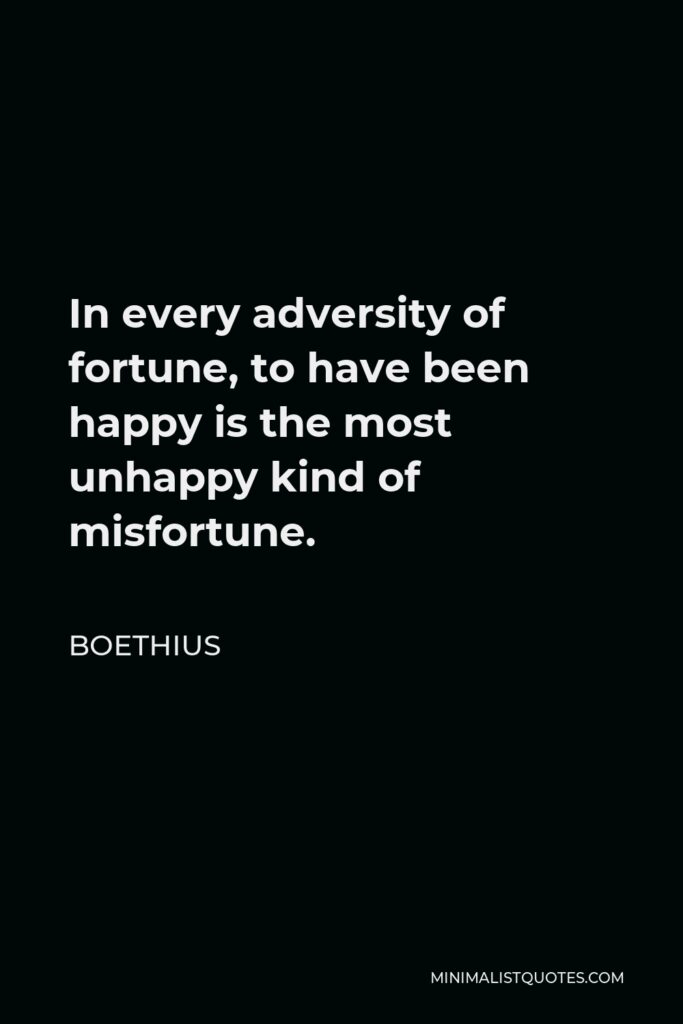

In every adversity of fortune, to have been happy is the most unhappy kind of misfortune.
BOETHIUS -





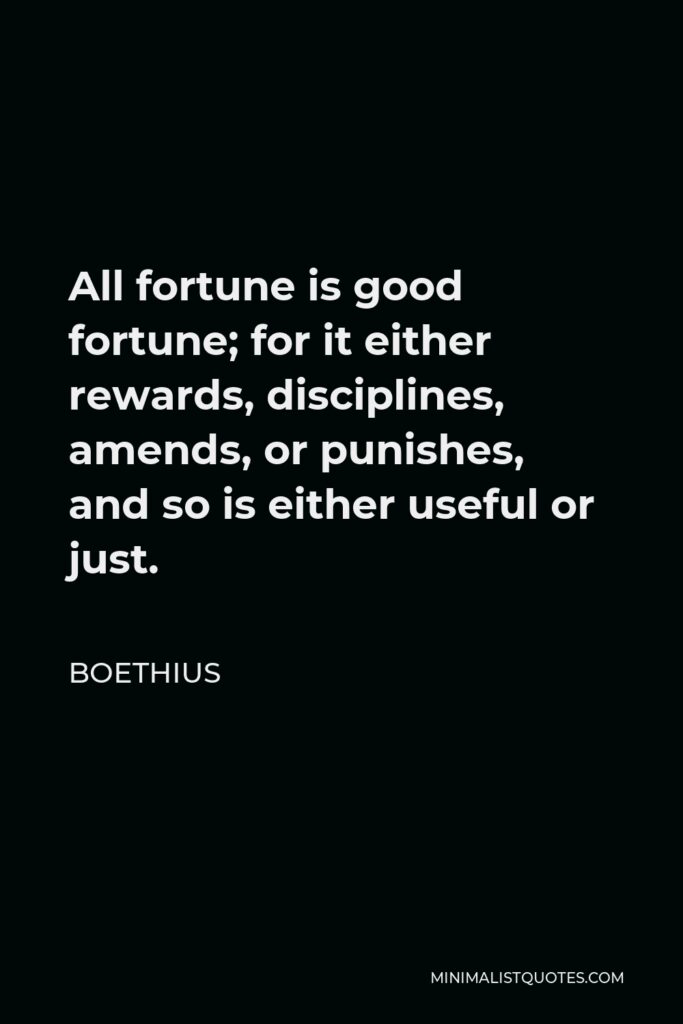

All fortune is good fortune; for it either rewards, disciplines, amends, or punishes, and so is either useful or just.
BOETHIUS -







Love has three kinds of origin, namely: suffering, friendship and love. A human love has a corporal and intellectual origin.
BOETHIUS -





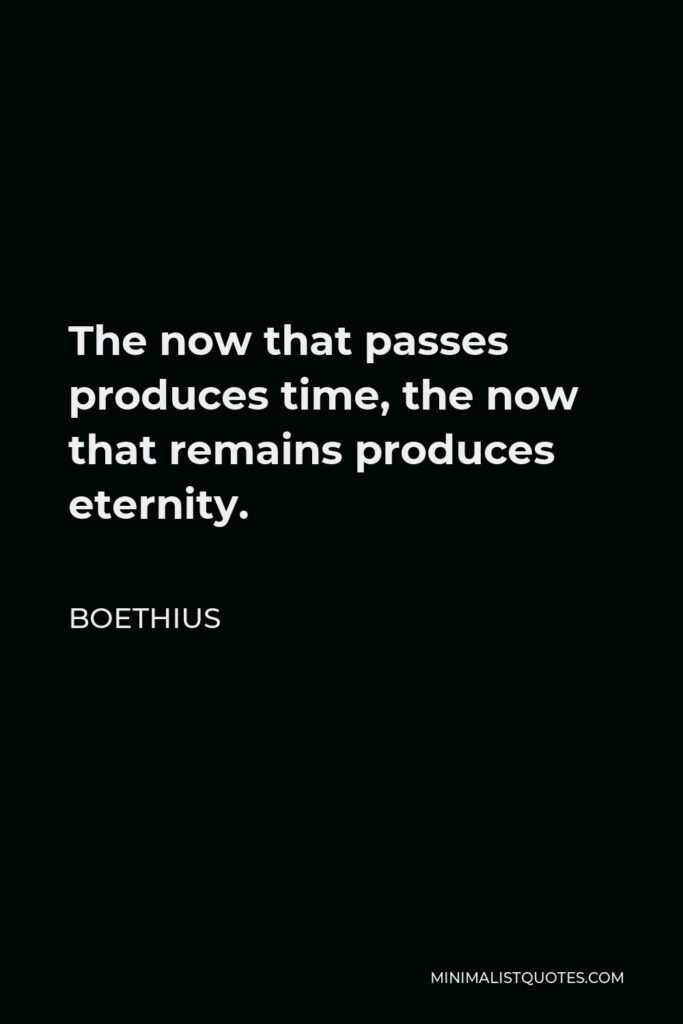

The now that passes produces time, the now that remains produces eternity.
BOETHIUS -





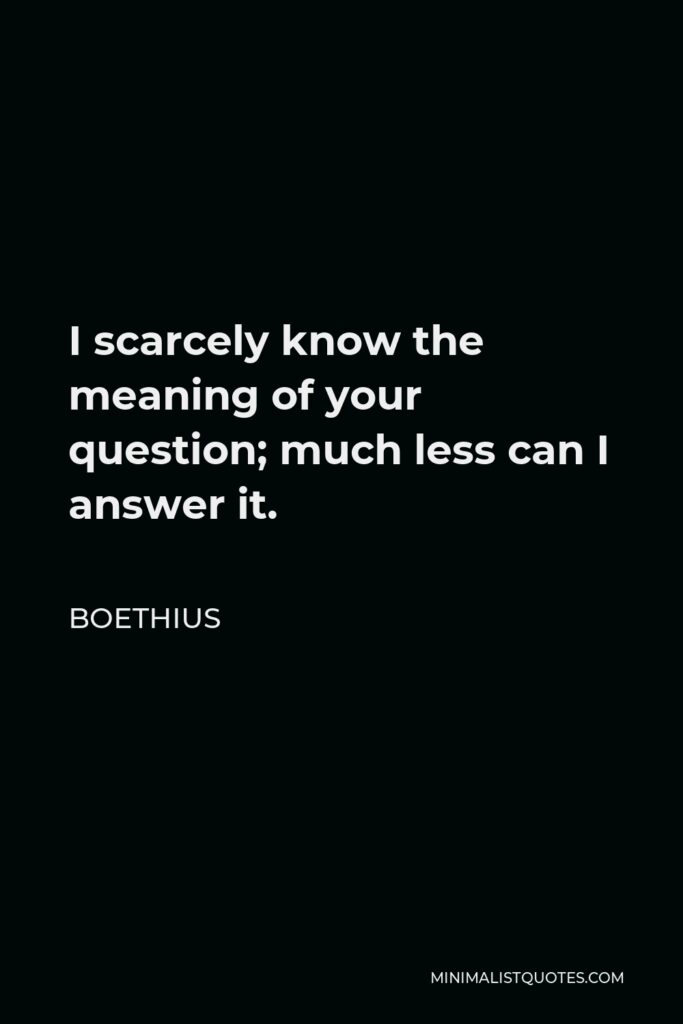

I scarcely know the meaning of your question; much less can I answer it.
BOETHIUS -







So nothing is ever good or bad unless you think it so, and vice versa. All luck is good luck to the man who bears it with equanimity.
BOETHIUS -







Whose souls, albeit in a cloudy memory, yet seek back their good, but, like drunk men, know not the road home.
BOETHIUS -







He who is virtuous is wise; and he who is wise is good; and he who is good is happy.
BOETHIUS -







Music is so naturally united with us that we cannot be free from it – even if we so desired.
BOETHIUS -





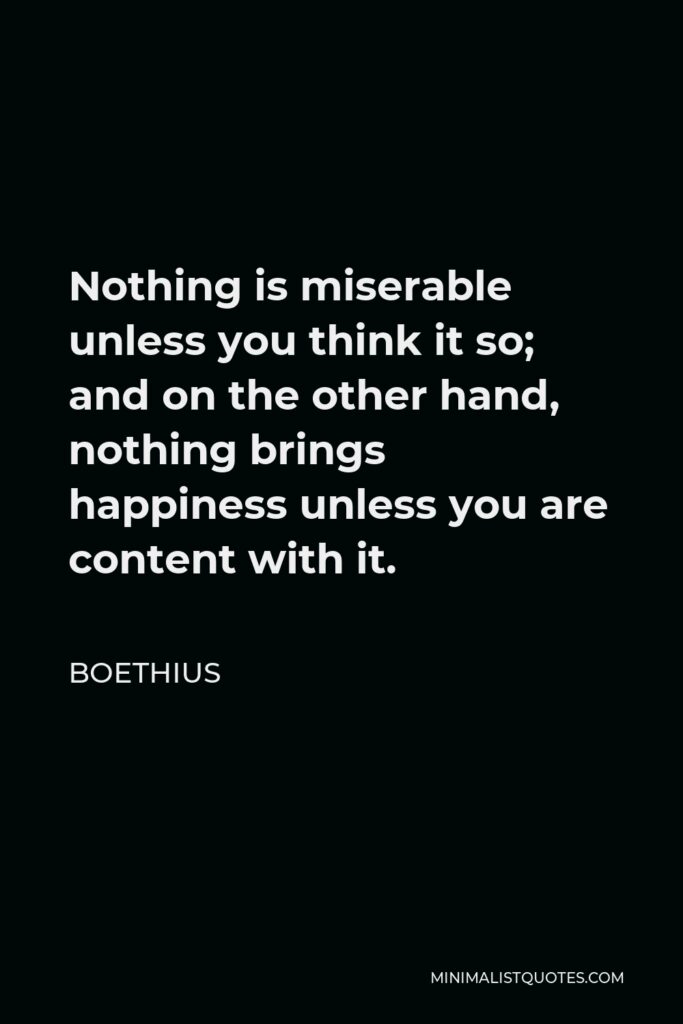

Nothing is miserable unless you think it so; and on the other hand, nothing brings happiness unless you are content with it.
BOETHIUS -







He who has calmly reconciled his life to fate, and set proud death beneath his feet, can look fortune in the face, unbending both to good and bad; his countenance unconquered.
BOETHIUS








